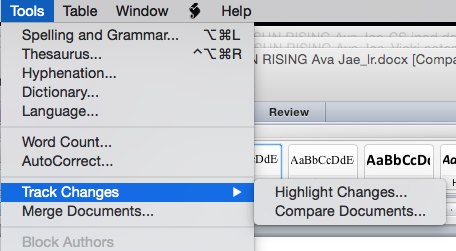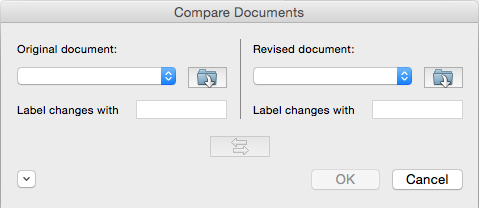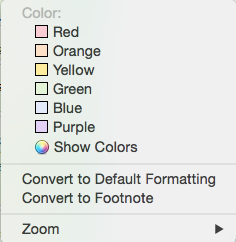Gabe Cole Novoa's Blog, page 66
March 2, 2015
Surprise #PitMad Pitch Critiques!
 Photo credit: Jorge Quinteros on FlickrSo this year’s #PitMad event is a week from today (so on 3/11/15), and I’m on Spring Break which means extra time which means I’m doing one of my favorite critique events right here on Writability.
Photo credit: Jorge Quinteros on FlickrSo this year’s #PitMad event is a week from today (so on 3/11/15), and I’m on Spring Break which means extra time which means I’m doing one of my favorite critique events right here on Writability. For the first time in about a year, I’ll critique your Twitter pitch right here in the comments from today, March 2nd to Thursday, March 5 at midnight. (Or rather, I’ll critique late night Thursday ones on Friday, but they will be critiqued if they're posted before midnight).
Some rules!
You must read this post on how to write a great Twitter pitch, FIRST. Granted, there’s no way for me to check, but I’m going on honor system here. The reason this is pseudo-mandatory is because I promise it’ll help you with Twitter pitch basics. And my past experience says I tend to refer people back to that post a lot.
Bonus: read this post on the top 5 Twitter pitch mistakes I saw during #PitchMAS.
Pay it forward by critiquing at least THREE other pitches. Two reasons for this: first, it’s just plain nice and second, it’ll help you figure out what works and doesn’t work in a pitch (which you can then apply to your own pitch! yay!). Also, you'll be more likely to get critiques from people other than myself, as well as my critique. Which is good for everyone. :)
You may post as many pitches are you want, HOWEVER, I can only promise to get to one per person. I will do my darnedest to try to get to them all, but these events have gotten pretty hugenormous in the past, so I can’t guarantee I’ll get to every single pitch if you post more than one.
Related: if you post more than one, please post them in separate comments (unless they’re super similar, i.e.: which version do you think is better?). This makes it easier for me to critique and get through the pitches in a more organized fashion.
Helpful tips:
For examples of winning pitches (i.e.: pitches that got requests), check out this awesome round-up from a past #PitMad event from Carissa Taylor.
For tips on the event itself, look at this post (and also don’t do this. No really. Don’t).
You can check your character count without accidentally tweeting here.
UPDATE: Alyssa in the comment recommended this really awesome post from my agent sister Diana Urban about what #PitMad is with great tips, and it includes a downloadable spreadsheet where you can schedule your posts and it automatically counts your characters. It's pretty fabulous. Check it out!
Don’t forget to save room for your genre, category and the hashtag! A quick rundown:
PB = Picture book
MG = Middle Grade
YA = Young Adult
NA = New Adult
A[genre]/Adult = Adult
SF = Science Fiction
F = Fantasy
UF = Urban Fantasy
PNR = Paranormal Romance
CR = Contemporary Romance
WF = Women’s Fiction
HisFic = Historical Fiction
SpecFic = Speculative Fiction
Others I've frequently seen written out/abbreviated to the best of the writer's ability.
And that's it! Let’s see those pitches! :)
Twitter-sized bites:
Are you entering #PitMad? Get your pitch critiqued before next week's event! (Click to tweet)
Thinking about entering #PitMad? Get a free pitch critique from author/assistant editor @Ava_Jae here. (Click to tweet)




Published on March 02, 2015 04:00
February 27, 2015
Fixing the First Page Feature #8
 Photo credit: eflon on FlickrNumber eight, here we go! As per usual, I’ll start by posting the full first 250 excerpt, after which I’ll share my overall thoughts, then my redline critique. I encourage you guys to share your own thoughts and critiques in the comments (because, as I will continue to say, I’m only one person with one opinion!), as long as it’s polite, thoughtful, and constructive. Any rude or mean comments will be deleted.
Photo credit: eflon on FlickrNumber eight, here we go! As per usual, I’ll start by posting the full first 250 excerpt, after which I’ll share my overall thoughts, then my redline critique. I encourage you guys to share your own thoughts and critiques in the comments (because, as I will continue to say, I’m only one person with one opinion!), as long as it’s polite, thoughtful, and constructive. Any rude or mean comments will be deleted.Let’s do this. :)
Title: LIBERTY’S TEARS
Genre/Category: Inspirational/Christian Fiction
First 250:
“Libby paced the living room of her Berkeley apartment and checked the clock on the wall for the dozenth time. In a matter of minutes, Kurt would arrive to pick her up for their eighth date. Eight dates in eight weeks. Had it already been two months?
Jayne Licerio, Libby’s best friend and roommate, sauntered into the room and over to the counter separating the kitchen from the main living area. “I thought you were going out tonight.”
"We are.” Libby stopped her pacing and plopped down on the couch.
“That’s too bad.” Jayne shook her head. “I thought your casual attire meant you’ve finally come to your senses.”
Libby looked down at the faded denim jeans she wore and feigned a smile. Jayne never liked Kurt. At first Libby didn’t understand why. He was successful, charismatic, and a Christian. What was there not to like?
But their last date caused Libby to question his motives and made her regret not sticking to her plan of not dating, something she hadn’t done since high school. Getting her college education didn’t allow time for it anyway, and watching what her sister went through convinced Libby men were bad news. When Kurt Stevens swept her off her feet, Libby thought maybe she’d give the male gender another chance.
Big mistake.
She took a deep breath and released it, but it did little to relax the ball of nerves rolling in the pit of her stomach.”
Hmmm okay. This is actually not a critique at all, but the coincidence of all these eights is amusing me. Anyway.
At this point, I’m curious about what Kurt did to make Libby question whether going out with him would be a good idea, though I’m thinking it might work better if the reasoning wasn’t withheld from the reader (after all, as we’re in Libby’s third person limited POV, shouldn’t we know what happened?). I’m also a little uncertain about how Libby feels about the date—initially I thought she was just having pre-date nerves, and then she mentions regretting going back on her no-dating policy, which then made me question why she’s going on another date if whatever Kurt did was that bad. Granted, this is only the first 250, and I don’t expect to get Libby’s full motivations right away, but I think a little more clarity on how she’s feeling in this opening would be useful.
Now for the redline critique.
“Libby paced the living room of her Berkeley apartment and checked the clock on the wall for the dozenth time. In a matter of minutes, Kurt would arrive to pick her up for their eighth date any minute now. Eight dates in eight weeks. Had it already been two months? Rather than this thought about the time (as we can see that yes, it’s been two months), I’d like to see something about how Libby feels about the situation. Is she happy they’ve been dating two months? Has it been a good two months? Is she wondering if maybe she should end it? The range of possibilities is super wide, and right now, I have no idea where she stands.
Jayne Licerio, Libby’s best friend and roommate, sauntered into the room and over to the counter separating the kitchen from the main living room area. Is it important for us to know Jayne’s last name? This is super subjective and more of a peeve for me, but I tend not to care about last names unless they’re major characters (though maybe Jayne is? It’s hard to say this early on). “I thought you were going out tonight.”
“We are.” Libby stopped her pacing and plopped down on the couch. "“We are.” Check to make sure you're consistent with your quotation marks. You have smart quotes and straight quotes here.
“That’s too bad.” Jayne shook her head. “I thought your casual attire those ugly jeans meant you’ve finally come to your senses.” I’m not sure if it fits Jayne’s character to call her jeans ugly, but the idea is to go with a specific detail rather than a vague descriptor. Also, “attire” sounds too formal for the situation.
Libby looked down at the her faded denim jeans she wore and feigned a smile. Jayne never liked Kurt. At first Libby didn’t understand why. He was successful, charismatic, and a Christian. What was there not to like? Is there a way you can show this? Maybe Jayne could make a comment like “You’ve never liked Kurt.” Otherwise, I’d condense to something like “It’d been easy to ignore Jayne’s warnings about Kurt until their last date…” The bit about him being successful, charismatic, and Christian you can show us through Kurt’s actions and characterization.
But their last date caused Libby to question his motives and made her regret breaking her no-dating policy not sticking to her plan of not dating, something she hadn’t done since high school. Having read this a second time now, I’d definitely rather know what happened. The detail would be more grounding and make sense, considering we’re in Libby’s POV. Or, if you don’t want to give it all away immediately, then hint at the disaster date with a detail rather than vaguely talking about it. Getting her college education didn’t allow time for it anyway, and watching what her sister went through convinced Libby men were bad news. When Kurt Stevens swept her off her feet, Libby thought maybe she’d give the male gender another chance. I’d cut this and show us this backstory bit by bit later on. I think you’ve got too much backstory in this opening, and it’s slowing down the narrative considerably.
Big mistake.
She took a deep breath and released it exhaled slowly, but it did little to relax the ball of nerves rolling in the pit of her stomach. Reworded to avoid repetition of ‘it.’”
Overall, I think this opening can work with some tweaks, but at the moment a lot of the backstory and explaining is slowing down the action. Nothing has happened at the end of your first page, and I think it’d be helpful to move things along a little more quickly. Remember: we don’t need all the backstory upfront, and oftentimes, it’s much more effective to spread it out. Also, you've got a bit of wordiness throughout, which indicates you probably have the same issue throughout the rest of your manuscript. I've done what I can to try to condense here on the first page, but I recommend you try to do the same to the rest of the WIP.
If I saw this in the slush, I’d probably pass, however that’s largely because I tend to prefer a quicker pace in submissions (so super super subjective). That said, I think with some fixes, this could be a great start with some interesting conflict upfront.
Thanks for sharing your first 250, Linda!
Would you like to be featured in a Fixing the First Page Feature? Keep an eye out for the next giveaway!
Twitter-sized bites:
.@Ava_Jae talks balancing backstory and pacing in the 8th Fixing the First Page critique. (Click to tweet)




Published on February 27, 2015 04:00
February 25, 2015
Nothing is Normal (in the Publishing Industry)
 Photo credit: - luz - on FlickrI’ve often heard people say that anyone who talks about writing or the publishing industry in absolutes is most likely wrong. I think, beyond some obvious exceptions (i.e.: yes, you really do have to read, or, yes, you really do have to revise), this is usually true. Because the publishing industry? It’s weird, you guys.
Photo credit: - luz - on FlickrI’ve often heard people say that anyone who talks about writing or the publishing industry in absolutes is most likely wrong. I think, beyond some obvious exceptions (i.e.: yes, you really do have to read, or, yes, you really do have to revise), this is usually true. Because the publishing industry? It’s weird, you guys.Some writers publish traditionally. Some self-publish. Some do both.
Some writers won’t get an agent until they’ve written nine ten eleven fifteen books. Some writers get an agent with their first second third book.
Some writers go on sub and have an offer the next freaking morning (I know, contain your jealousy), others go on sub and have nothing but silence and rejections for over a year, then sell to a major publisher.
If I hear one more time "if your book doesn't sell within 3 months on sub it won't sell" I'll
scream. Multiple House Auction, 16 months.
— Hillary Monahan (@HillaryMonahan) February 20, 2015
Some writers get a really small or nonexistent advance, other writers get multi-book deals with six plus figures.
Some writers publish a book a year (or less). Other writers publish six seven eight nine books in the span of twelve months.
Some writers self-publish and sell a few dozen or hundred copies. Other writers self-publish and become massive bestsellers and have traditional publishers approaching them to print their mega-successful book.
Some writers hit it big with their debut novel and end up a #1 NYT bestseller the same week their book debuts. Other writers mid-list with their debut and slowly build up their careers, one book at a time.
When it comes to the publishing industry, there isn’t a “usual.” This is a notoriously unpredictable career choice with a ridiculous range in possibilities.
So I guess what I’m trying to say is if you don’t get an agent with your fifth six seventh book, if you don’t get an immediate response when on submission, if you don’t get a huge advance or publish eight books a year, if you don’t sell as many copies of your book as you hoped, if you don’t hit it big with your debut, it’s okay. It really, truly, honestly is okay, and I promise there are a hundred writers out there in your shoes, or who had really similar experiences. You are okay, and you will be okay.
Sure, it can be a little disappointing when reality doesn’t match up with your wildest dreams. But know that just because things aren’t lining up the way you’d hoped right now doesn’t mean they never will. Know that you’re not alone, and things will work out, but right now you just have to (yes, here it comes) be patient and let things play out how they will.
This is a tough industry to be in, but there are many out there who are right alongside you. Just keep your eyes on your own paper and do what you do best: write.
Twitter-sized bites:
Writer @Ava_Jae says when it comes to the publishing industry, there isn't a "normal." What do you think? (Click to tweet)
"This is a notoriously unpredictable career choice w/ a ridiculous range in possibilities." —@Ava_Jae on publishing. (Click to tweet)




Published on February 25, 2015 04:00
February 24, 2015
Vlog: Do You Need a Degree to Get Published?
Today I answer a question I know a lot of young writers in particular struggle with: do you need a degree to get published? The answer isn't as straightforward as you might think.
RELATED LINKS:
About (Remote) Publishing Internships (vlog)From Contest to Book Deal (vlog)
What do you think?
Twitter-sized bites:





RELATED LINKS:
About (Remote) Publishing Internships (vlog)From Contest to Book Deal (vlog)
What do you think?
Twitter-sized bites:
Do you need a degree to get published? Writer @Ava_Jae vlogs her thoughts. (Click to tweet)
.@Ava_Jae says you don't need a degree to get published, but you might decide to get one anyway. What do you think? (Click to tweet)




Published on February 24, 2015 04:00
February 23, 2015
Fixing the First Page Giveaway Winner #8
 Photo credit: Chuckumentary on FlickrQuick super rare double post to announce the winner of the eighth fixing the first page feature giveaway! Are you ready?
Photo credit: Chuckumentary on FlickrQuick super rare double post to announce the winner of the eighth fixing the first page feature giveaway! Are you ready?The winner is…
LINDA STRAWN
Yay! Congratulations, Linda!
Thank you to all you lovely entrants! There will be another next month, so keep an eye out! :)




Published on February 23, 2015 15:00
Book Review: I’LL GIVE YOU THE SUN by Jandy Nelson
 Photo credit: GoodreadsAs you probably know by now, I like to start these review things with the Goodreads summary, so here we go:
Photo credit: GoodreadsAs you probably know by now, I like to start these review things with the Goodreads summary, so here we go: “Jude and her twin brother, Noah, are incredibly close. At thirteen, isolated Noah draws constantly and is falling in love with the charismatic boy next door, while daredevil Jude cliff-dives and wears red-red lipstick and does the talking for both of them. But three years later, Jude and Noah are barely speaking. Something has happened to wreck the twins in different and dramatic ways…until Jude meets a cocky, broken, beautiful boy, as well as someone else—an even more unpredictable new force in her life. The early years are Noah's story to tell. The later years are Jude's. What the twins don't realize is that they each have only half the story, and if they could just find their way back to one another, they’d have a chance to remake their world.”Right, so, I don’t usually do this, but I’m also going to share with you my Goodreads updates from when I was reading, because they basically sum up my experience pretty nicely:

I’m not sure what I expected when I picked up I’ll Give You the Sun by Jandy Nelson. I knew the basics: dual POV, everyone seems to love it, LGBTQIA+ themes, and then it went ahead and won the Printz a few days after I started reading, so I knew chances that I was going to like it were high.
But wow, you guys. I really really loved this one.
I'm not an externally emotional reader. I mean, I obviously have feels like everyone else, but I’ve yet to read a book that made me cry, as I’ve confessed here before, and I’m usually pretty good about keeping a stoic exterior while reading. But I’ll Give You the Sun put me on the brink of tears several times, which is ridiculously rare for me, and I just loved Noah and Jude so much, and the writing!
The writing. I think Nelson’s prose is one of those love/hate varieties, but I definitely fell on the love side. Both Noah and Jude’s voices were a little out there with some of the imagery and analogies, but I felt like I really got it, and it totally made sense to me with their very artsy personalities, and it just felt so fresh, and wonderful, and fit the tone of the book beautifully.
Noah and Jude aren’t perfect. They both make hurtful, cringe-worthy mistakes with big consequences. They’re emotional, and young, and full of dreams, and highs, and lows, and I became so very emotionally entangled with their stories.
I often tell people that the best books make you feel something. I’ll Give You the Sun didn’t make me feel something—it made me feel everything. I loved every page, and Nelson’s got herself a new fan for sure.
What have you been reading lately? Any recommendations?
Twitter-sized bites:
.@Ava_Jae gives 5/5 stars to I’LL GIVE YOU THE SUN by @jandynelson. Have you read this beautiful YA Contemporary? (Click to tweet)
Looking for an emotional & diverse YA read? Check out I’LL GIVE YOU THE SUN by Jandy Nelson. (Click to tweet)




Published on February 23, 2015 04:00
February 20, 2015
How to Import Word Comments into Scrivener
 Photo credit: MIKI Yoshihito (´・ω・) on FlickrNOTE: You have until this Sunday (2/22/15) to enter for a chance to win a first 250 critique to be featured here on Writability!
Photo credit: MIKI Yoshihito (´・ω・) on FlickrNOTE: You have until this Sunday (2/22/15) to enter for a chance to win a first 250 critique to be featured here on Writability! Up until basically last week, I was under the impression that it was impossible to auto-import CP comments from Word into Scrivener. And so, I would sit for hours, importing CP comments by hand—that is, retyping them into Scrivener.
When I received my CP comments for the latest WIP, however, I knew there was no way I’d be able to do that this time. Because there were over 1,300 of them. (Yeah.)
So I had a choice: either edit entirely in Word (which, I mean, was an option, but not my favorite one), or spend a ridiculous amount of time importing by hand, which I’d pretty much already decided wouldn’t be worth it.
Or was there another choice?
After doing some internet scouring, I came across this post on importing documents from Word into Scrivener. I’d seen the post before, and already knew the process described in the post didn’t import comments, but this time my Google search directed me into the comments on the post…where I found my answer: RTF files.
After some playing around, I managed to figure it out with a little help from the post. And so here's the process I used:
Open all documents containing CP notes in Microsoft Word. For me, that was three documents this time. The reason you need to open everything in Word first, is before you import to Scrivener, you need to merge all of your documents with CP notes into one Word doc. Which is a thing! A very useful thing. Anyway...
Go to Tools > Track Changes > Compare Documents.

Choose two of your documents. You will now see this menu:

If you want to attempt to preserve the tracked changes your CPs suggested, then choose the document with the most tracked changes as “Original document.” I will say, however, this attempt to preserve tracked changes is somewhat futile as it gets messed up when you import to Scrivener anyway. So up to you.
Click “OK” and save your new document. Word creates a completely new document now with the comments from both of the documents you just “compared.” Save this document, then repeat this process as many times as you need (using your new merged document with the next one you want to merge with).
Save your final document as an RTF. Once you have your brand new, shiny document with all of your CP comments in one place, save your file as an RTF. This is what you’ll be importing into Scrivener.
Open your project in Scrivener. Self-explanatory.
Go to File > Import > Files…

And choose your new RTF file. This will bring in your newly merged document into Scrivener, with all comments intact. YAY!
Some caveats:
You will have to redistribute your chapters or scenes into separate Scrivener scenes again. When you initially import, it’ll all be in one ginormous Scrivener scene, so you’ll have to reorganize however you had it before you compiled it into a Word document. This is a little annoying, but relatively easy and totally worth it, IMO.
Tracked changes will be a mess. So this is a more significant downside—you’re going to lose a lot of the tracked changes your CPs suggested, both because they get messed up in the Word merge, and because Scrivener doesn’t recognize tracked changes. Instead, Scrivener will automatically try to implement the tracked changes that remained intact in the merged document, which is a bit of a headache because it doesn’t implement it correctly and it’s not marked, so you kind of just have to catch them.
I didn’t know that when I imported, so I suspect I’ll be catching them for a while. I think, however, if you go through your Word document and fix all the tracked changes there before you import into Scrivener (and, even better—before you merge the documents in Word), this shouldn’t be a problem. I’ll be doing that in the future.
All of your comments will be imported as if they came from the same person. As in, they’ll all be the same color. Which isn’t a big deal to me. I plan to color code mine differently once I’ve brought my comment count down to a manageable number.
If two (or more) CPs comment on the same line their comments will be merged. You’ll be able to tell, because there won’t be a space between the end of CP 1’s comment and the beginning of CP 2’s comment. I actually don’t mind this—it lets me see multiple opinions in one CP box, and it’s I found it pretty fun when all three of my CPs commented on the same thing.
So that’s it! I hope this saves you some time in getting Word comments into Scrivener. I know I, for one, will never be manually importing comments again.
Twitter-sized bites:
Ever wonder how to get Word comments into Scrivener? Writer @Ava_Jae share the process she uses to do just that. (Click to tweet)
Did you know you can import Word comments into Scrivener? Writer @Ava_Jae explains one method of doing so. (Click to tweet)




Published on February 20, 2015 04:00
February 19, 2015
Fixing the First Page Giveaway #8
 Photo credit: mbshane on FlickrHey everyone, it's that time again! I'm posting this on a usually non-post day because I maybe forgot February has less days than the rest of the months and I'm determined to squeeze in a first page critique this month. So yay spontaneous post! Anyway.
Photo credit: mbshane on FlickrHey everyone, it's that time again! I'm posting this on a usually non-post day because I maybe forgot February has less days than the rest of the months and I'm determined to squeeze in a first page critique this month. So yay spontaneous post! Anyway.For those who’ve missed it in the past, the Fixing the First Page features is a public first 250 word critique. Using the lovely rafflecopter widget, anyone interested in winning a PUBLIC (as in, featured in a post on this blog) first page critique can enter.
For an example of what this critique will look like, here's the last Fixing the First Page post.
Rules!
ONLY the first 250 words will be critiqued (up to finishing the sentence). If you win and send me more, I will crop it myself. No exceptions.
ONLY the first page. I don’t want 250 random words from your manuscript, or from chapter 3. If you win the critique and send me anything other than the first 250 words of your manuscript, I will choose someone else.
I will actually critique it. Here. On the blog. I will say things as nicely as I can, but I do tend to be a little blunt. If you’re not sure you can handle a public critique, then you may want to take some time to think about it before you enter.
Genre restrictions. I'm most experienced with YA & NA, but I will still accept MG and Adult. HOWEVER. If your first page has any erotic content on it, I ask that you don’t enter. I want to be able to post the critique and the first 250 in its entirety without making anyone uncomfortable, and if you win and you enter a page with erotic content, I will choose someone else.
You must have your first page ready. Should you win, you need to be able to submit your first page within 48 hours of my contacting you to let you know you won. If 48 hours pass and I haven’t heard from you, again, I will choose someone else.
You’ll get the most out of this if it isn’t a first draft. Obviously, I have no way of knowing if you’re handing me a first draft (though I will probably suspect because it’s usually not that difficult to tell). I won’t refuse your page if it’s a first draft, but you should know that this critique will likely be of more use if you’ve already had your betas/CPs look over it. Why? Because if you don’t, the critique I give you will probably contain a lot of notes that your betas & CPs could have/would have told you.
There will not be a round 2 (unless you win again in a future contest). I hate to have to say this, but if you win a critique, it’s NOT an invitation to send me a bunch of your revisions. I wish I had the time available to be able to look at revisions, but sadly, I don’t. If you try to break this rule, I will nicely say no, and also remember to choose someone else should you win a second contest. Which would make me sad. :(
So that’s it! If you’re okay with all of the above and would like to enter to be the eighth public critique on Writability, do the thing with the rafflecopter widget below. You have until Sunday, February 22 at 11:59 EST to enter!
a Rafflecopter giveaway




Published on February 19, 2015 04:00
February 18, 2015
How to Use Comments in Scrivener
 Photo credit: kukkurovaca on FlickrOnce upon a time, I used to think Scrivener didn't have much of a commenting system, and then I discovered the truth and it basically changed how I approach revisions forever. Because it turns out Scrivener's commenting system is pretty fabulous.
Photo credit: kukkurovaca on FlickrOnce upon a time, I used to think Scrivener didn't have much of a commenting system, and then I discovered the truth and it basically changed how I approach revisions forever. Because it turns out Scrivener's commenting system is pretty fabulous.As it's not one of Scrivener's frequently spoken about features, I'm thinking I'm not the only writer who didn't know much about it, and so I thought I'd share exactly where to find them, and how to use them.
Here we go:
By default, Scrivener’s right-hand sidebar is set to Project notes, where you can leaves notes for referencing while you work on your book. There are, however, other greatly underutilized sections in that sidebar, and comments are one of them.
Click the comments icon (a speech bubble with an “n” and an asterisk). It looks like this:

Congratulations! You have now opened the Comments & Footnotes sidebar. It’s pretty magical, let me tell you.
Highlight whatever text you want to leave a comment on. This part is just like Word—the first step to commenting is highlighting whatever line or word you’re going to comment on. Easy!
Click the add comment button. It’s the one that looks like a yellow speech bubble. See below:
 Voila! You can now leave yourself comments. But there’s more!
Voila! You can now leave yourself comments. But there’s more!You can change the colors of the comments. This is probably my second favorite part. I like to color code by CP (although, when I have a crazy high number of comments, that doesn’t always happen). This time I’m thinking about possibly organizing types of comments by color because colors are fun. Anyway.
The steps for changing colors are pretty easy. You right click whatever comment you want to switch the color of and then choose from the following menu.

You can even set a custom color, if you want! It’s pretty schnazzy.
When you click on a comment in the sidebar, it jumps to the spot in the manuscript. I said colors were my second favorite part, because this right here is what makes Scrivener comments better than Word comments, in my opinion. If you have your whole manuscript selected, you can view all the comments in your manuscript in the sidebar and when you click one, it’ll jump to that spot. Or if you have just one chapter open, it’ll show you all that comments in that one chapter. Or whatever other selection you make.
This makes organization really easy, and also allows you to jump around and make changes however your heart desires, as well as giving you a general overview of the comments in your manuscript.
Now, there are two pretty big downsides of Scrivener comments. Or one a half.
Firstly, as far as CP purposes go, track changes in Word is way superior. In Scrivener, there is a sort of track changes thing, but it basically just changes the colors of changes you make (which I like! But isn’t all that useful for seeing what changes your critique partners recommend). Also, as far as I can tell, you can’t import tracked changes, so you’ll have to make the changes manually anyway.
Second, up until yesterday I thought it was impossible to import comments from Word into Scrivener. But! I have figured out a way and I will share that with you guys on Friday. This is still a half downside though, because the process is far from perfect and has some caveats. Still.
All of that said, I still love using the comments feature in Scrivener, and so the caveats are worth it to me. You may agree, or you may not, but I think it’s worth experimenting with. :)
Do you use Scrivener comments? Do you have any tips?
Twitter-sized bites:
Did you know Scrivener has a commenting system? Writer @Ava_Jae breaks down where to find it & how to use it. (Click to tweet)
Love Scrivener? Writer @Ava_Jae discusses why she prefers Scrivener comments over MS Word & how to use them. (Click to tweet)




Published on February 18, 2015 04:00
February 17, 2015
Vlog: About (Remote) Publishing Internships
Curious about publishing internships? Today I talk about remote internships, why they can be great for writers, and lessons I learned from my intern experience. Enjoy!
RELATED LINK:
Thoughts From the Intern Slush Pile: Common Issues
Twitter-sized bites:





RELATED LINK:
Thoughts From the Intern Slush Pile: Common Issues
Twitter-sized bites:
Curious about remote publishing internships? @Ava_Jae vlogs about why they can be great for writers. (Click to tweet)
What do remote publishing interns do? @Ava_Jae vlogs about her internship experience & lessons she learned. (Click to tweet)




Published on February 17, 2015 04:00



